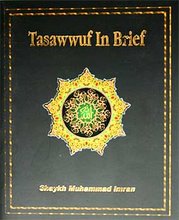بسم الله الرحمن الرحيم الحمد لله رب العالمين والصلوة والسلام على سيدنا محمد رسوله الرؤوف الرحيم
قال الله تعالى: ولهن مثل الذي عليهن... (البقرة : ٢٢٨)
“…Women have similar rights to what they are owed…” (Al-Baqarah: 228)
عن معاوية بن حيدة رضي الله عنه قال: قلت: يا رسول الله ما حق زوجة احدنا عليه؟ قال: أن تطعمها إذا طعمت وتكسوها إذا اكتسيت ولاتضرب الوجه ولاتقبح ولاتهجر إلا في البيت. (أبو داوود)
Mu’awiyah ibn Haydah radhiyallahu anhu is reported to have said: "I asked, ‘O Messenger of Allah, what is the right of someone's wife over him?' He said, 'That you feed her when you eat and clothe her when you clothe yourself and do not strike in the face. Do not malign her and do not keep apart from her, except in the house.'" [Abu Dawud]
It is a common misconception that the husband in a marriage is owed more rights than he himself owes. This idea is clearly rejected by the Quran in the above mentioned verse, which the great commentator explains thus:
لهن من حقوق الزوجية على الرجال مثل ما للرجال عليهن
“In a marriage, the women have as many rights over the men as the men do over them.”
Ibn Zayd explained it thus:
تتقون الله فيهن كما عليهن أن يتقين الله فيكم
“You [husbands] must fear Allah with regard to their [wives’] rights, just as it is necessary for them to fear Allah with regard to yours.”
It has become widespread that a husband is careless and negligent of his own appearance and state whilst expecting that his wife remains adorned and beautified at all times. This is a selfish attitude which leads to quarrelling and disputes. A common example is that of a smoker who after smoking comes to his wife with the most awful stench coming from his mouth, body and clothes. Naturally, his wife is reluctant to go to him, so he complains that she doesn’t love him and is not attracted to him! And many conflicts happens..
The great sahabi and commentator of the Quran, Sayyiduna Abd ‘Allah ibn Abbas radhiyallahu anhu stated:
إني لأتزين لامرأتي كما تتزين لي؛ وما أحب أن أستنظف كل حقي الذي لي عليها فتستوجب حقها الذي لها علي
“I am keen to adorn myself for my wife just as she adorns herself for me. And I do not wish to simply take all my rights that she owes to me for she deserves her rights that I owe to her.”
Furthermore, as the hadith we mentioned at the beginning states, it is the right of the wife that her husband feeds her, clothes her and is never aggressive and violent towards her.
The hadith also states that a man should not separate from his wife except in the house.
This is in reference to one of the stages of disciplining an extremely disobedient wife where the husband is advised to separate the sleeping arrangements when the wife simply does not leave her wrong ways. So even in this situation, he is ordered to remain at home and not, as some do, leave the wife for many months whilst he is away on holiday! Nor can he stop talking to her; the separation is only in sleeping arrangements.
Even when one’s spouse is troublesome, Islam has placed sanctions on the action one may take, how then would it allow aggression and violence?
Ulama have written that it is a fiqhi mas’alah that husband cannot stay away from his wife more than 4 months without her permission even if it is a sacred journey i.e. hajj, to seek Islamic knowledge or in tabligh
واخر دعوانا ان الحمد لله رب العالمين
Next week (Insha ‘Allah): The Most Complete Believer…
قال الله تعالى: ولهن مثل الذي عليهن... (البقرة : ٢٢٨)
“…Women have similar rights to what they are owed…” (Al-Baqarah: 228)
عن معاوية بن حيدة رضي الله عنه قال: قلت: يا رسول الله ما حق زوجة احدنا عليه؟ قال: أن تطعمها إذا طعمت وتكسوها إذا اكتسيت ولاتضرب الوجه ولاتقبح ولاتهجر إلا في البيت. (أبو داوود)
Mu’awiyah ibn Haydah radhiyallahu anhu is reported to have said: "I asked, ‘O Messenger of Allah, what is the right of someone's wife over him?' He said, 'That you feed her when you eat and clothe her when you clothe yourself and do not strike in the face. Do not malign her and do not keep apart from her, except in the house.'" [Abu Dawud]
It is a common misconception that the husband in a marriage is owed more rights than he himself owes. This idea is clearly rejected by the Quran in the above mentioned verse, which the great commentator explains thus:
لهن من حقوق الزوجية على الرجال مثل ما للرجال عليهن
“In a marriage, the women have as many rights over the men as the men do over them.”
Ibn Zayd explained it thus:
تتقون الله فيهن كما عليهن أن يتقين الله فيكم
“You [husbands] must fear Allah with regard to their [wives’] rights, just as it is necessary for them to fear Allah with regard to yours.”
It has become widespread that a husband is careless and negligent of his own appearance and state whilst expecting that his wife remains adorned and beautified at all times. This is a selfish attitude which leads to quarrelling and disputes. A common example is that of a smoker who after smoking comes to his wife with the most awful stench coming from his mouth, body and clothes. Naturally, his wife is reluctant to go to him, so he complains that she doesn’t love him and is not attracted to him! And many conflicts happens..
The great sahabi and commentator of the Quran, Sayyiduna Abd ‘Allah ibn Abbas radhiyallahu anhu stated:
إني لأتزين لامرأتي كما تتزين لي؛ وما أحب أن أستنظف كل حقي الذي لي عليها فتستوجب حقها الذي لها علي
“I am keen to adorn myself for my wife just as she adorns herself for me. And I do not wish to simply take all my rights that she owes to me for she deserves her rights that I owe to her.”
Furthermore, as the hadith we mentioned at the beginning states, it is the right of the wife that her husband feeds her, clothes her and is never aggressive and violent towards her.
The hadith also states that a man should not separate from his wife except in the house.
This is in reference to one of the stages of disciplining an extremely disobedient wife where the husband is advised to separate the sleeping arrangements when the wife simply does not leave her wrong ways. So even in this situation, he is ordered to remain at home and not, as some do, leave the wife for many months whilst he is away on holiday! Nor can he stop talking to her; the separation is only in sleeping arrangements.
Even when one’s spouse is troublesome, Islam has placed sanctions on the action one may take, how then would it allow aggression and violence?
Ulama have written that it is a fiqhi mas’alah that husband cannot stay away from his wife more than 4 months without her permission even if it is a sacred journey i.e. hajj, to seek Islamic knowledge or in tabligh
واخر دعوانا ان الحمد لله رب العالمين
Next week (Insha ‘Allah): The Most Complete Believer…




No comments:
Post a Comment